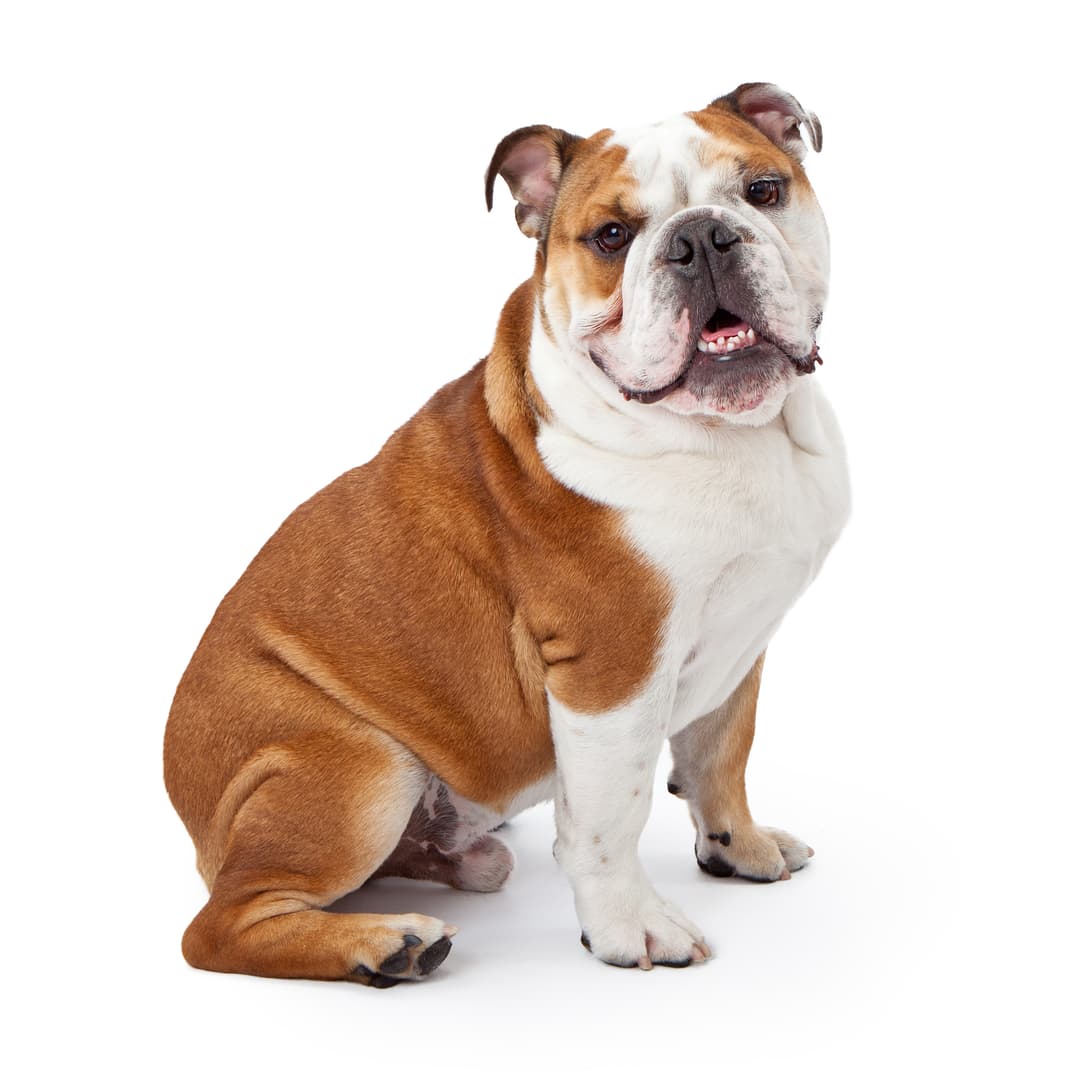Basepaws analyzes this breed as part of a group of other breeds.


Basepaws analyzes this breed as part of a group of other breeds.


Basepaws analyzes this breed as part of a group that also includes Continental Bulldog, English Bulldog.
Despite being distinct in characteristics and origin, some pairs or groups of breeds lack the number of genetic differences required to distinguish these populations from one another, particularly when only a subset of these differences are inherited by a mixed breed dog. As we continue to expand our breed database, we aim to increase the resolution of our ancestry algorithm such that differentiating between increasingly specific ancestral sources becomes possible.

The English Bulldog, also known as the British Bulldog or simply the Bulldog, originated in the British Isles and is considered a national symbol of the United Kingdom. The breed's history traces back to the 13th century, where its ancestors were used in a cruel sport called 'bull-baiting,' hence the name 'Bulldog.' The Bulldog would bite and hang onto the bull's nose to immobilize it, demonstrating the breed's strength and tenacity. When this practice was banned in 1835, breeders focused on eliminating the aggression from the breed and enhancing its more gentle and affable characteristics. Over the years, the English Bulldog evolved from a fighting dog to a lovable, docile pet.
English Bulldogs are not efficient at cooling themselves, so overheating is a real concern for this breed. They are a brachycephalic breed that is prone to breathing problems. Bulldogs are also susceptible to canine hip dysplasia, keratoconjunctivitis sicca, elongated soft palate, shoulder luxation, ventricular septal defect, stenotic nares, and internalized tail. They may also suffer from demodicosis, urethral prolapse, entropion, vaginal hyperplasia, cherry eye, distichiasis, ectropion, cystinuria type 3, degenerative myelopathy, hyperuricosuria, and multifocal retinopathy 1, and patellar luxation. Body and facial wrinkles should be kept dry and clean to prevent skin dermatitis. They also require Cesarean delivery for giving birth and often experience complications while under anesthesia. Genetic testing can assist veterinarians with diagnosis and proactive care, as well as help breeders identify affected and carrier dogs.
English Bulldogs are known for their lovable, gentle disposition. They are typically calm, courageous, and friendly, often forming strong bonds with their families. Bulldogs are also known for their stubbornness, which can make training a bit challenging. However, with consistent, positive reinforcement techniques, they can be trained effectively. They are generally good with children and get along well with other pets.
A canine genetic lineage is a group of individuals or entire breeds that descended from common ancestors predating modern breed formation. Often these lineages are associated with a ‘type’ of dog with a unique historical working role and associated behaviors (e.g., herding, scent hunting, etc.).
Mastiff and bull-type breeds have strong, muscular builds. Both mastiff and bull-type breeds are protective and loyal, which are essential traits for this breed as guardian dogs and as companions. Although they appear imposing, many of these breeds are known for their gentleness and affection towards their families. They are a great example of loyal guardian dogs.
Example breeds with ancestry from this lineage include French Bulldog, St. Bernard, and Bullmastiff.
Despite their tough exterior, Bulldogs are known to be extremely sensitive and dislike being yelled at. They're more likely to respond to a gentle voice and positive reinforcement.
The English Bulldog is the mascot for dozens of universities and sports teams, including Yale University, whose bulldog mascot "Handsome Dan" is one of the most recognizable college mascots in the United States.
They are infamous for their loud snoring – a result of being a brachycephalic (flat-faced) breed.
They're not the best swimmers due to their heavy, muscular body and short legs. It's important to keep a close watch on them around pools or bodies of water.
https://www.akc.org/dog-breeds/bulldog/ https://www.ukcdogs.com/english-bulldog https://www.fci.be/Nomenclature/Standards/149g02-en.pdf
https://www.petmd.com/dog/breeds/c_dg_bulldog
https://www.pawprintgenetics.com/products/breeds/104/
Recommended by top vets with decades of experience
21 breeds
64 genetic health markers
50 genetic trait markers
